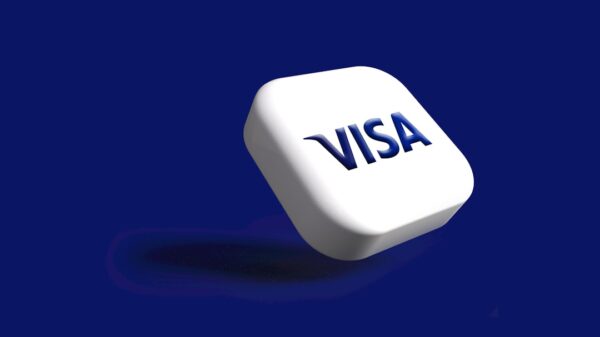Union Bank of India, one of the leading public sector banks in India, offers a range of financial products tailored to meet the needs of students pursuing higher education. Education loans from Union Bank are designed to provide financial assistance to students who wish to pursue undergraduate, postgraduate, or professional courses in India or abroad. These loans cover various expenses associated with education, including tuition fees, accommodation, books, and other necessary supplies.
The bank aims to empower students by making quality education accessible, thereby contributing to the overall development of the nation. The education loan scheme from Union Bank is characterized by its competitive interest rates and flexible repayment options. The bank recognizes the financial burden that education can impose on families and strives to alleviate this through its loan offerings.
With a focus on transparency and customer service, Union Bank ensures that students and their families are well-informed about the terms and conditions of the loans. This commitment to clarity helps borrowers make informed decisions regarding their financial futures.
Key Takeaways
- Union Bank offers education loans to help students pursue higher education in India and abroad.
- Eligibility criteria for Union Bank education loans include admission to a recognized course and a co-applicant with a stable income.
- To apply for a Union Bank education loan, students can visit the nearest branch or apply online through the bank’s website.
- Features and benefits of Union Bank education loans include competitive interest rates, flexible repayment options, and no prepayment charges.
- When choosing a college for higher education, students should consider factors such as accreditation, placement opportunities, and overall reputation.
Eligibility Criteria for Union Bank Education Loans
To qualify for an education loan from Union Bank, applicants must meet specific eligibility criteria set forth by the bank. Primarily, the applicant must be an Indian citizen and should have secured admission to a recognized institution for a full-time course. This could include universities, colleges, or other educational establishments that are accredited and recognized by relevant authorities.
The bank typically requires proof of admission, which can include an acceptance letter or enrollment confirmation from the institution. In addition to citizenship and admission status, Union Bank also considers the academic performance of the applicant. Students with a strong academic record are often viewed more favorably during the loan approval process.
Furthermore, the bank may require a co-applicant, usually a parent or guardian, who has a stable income source to ensure that loan repayments can be managed effectively. This co-applicant’s financial standing is also assessed to determine the overall creditworthiness of the loan application.
How to Apply for a Union Bank Education Loan

Applying for an education loan from Union Bank is a straightforward process designed to facilitate access to funds for students. The first step involves gathering all necessary documentation, which typically includes proof of identity, proof of residence, academic records, and details of the course and institution. Additionally, applicants must provide income proof for themselves and their co-applicants, along with any other documents that may be required by the bank.
Once all documents are prepared, applicants can visit their nearest Union Bank branch or apply online through the bank’s official website. The online application process is particularly convenient as it allows students to fill out forms and upload documents from the comfort of their homes. After submission, the bank will review the application and conduct a credit assessment.
If approved, the loan amount will be disbursed in accordance with the terms agreed upon during the application process. It is essential for applicants to maintain open communication with bank officials throughout this process to address any queries or concerns that may arise.
Features and Benefits of Union Bank Education Loans
| Features | Benefits |
|---|---|
| Competitive interest rates | Lower cost of borrowing for education |
| Flexible repayment options | Ability to choose a repayment plan that suits individual financial situation |
| No prepayment charges | Freedom to repay the loan ahead of schedule without any extra charges |
| Quick and hassle-free processing | Convenient and efficient loan approval process |
| Loan amount covers tuition fees, books, accommodation, and other related expenses | Comprehensive coverage for various education-related costs |
Union Bank’s education loans come with several features that make them an attractive option for students seeking financial assistance. One of the most notable features is the competitive interest rate structure, which is often lower than that of private sector banks. This can significantly reduce the overall cost of borrowing for students over the life of the loan.
Additionally, Union Bank offers flexible repayment options that allow borrowers to choose a repayment plan that aligns with their financial situation post-graduation. Another significant benefit is the moratorium period provided by Union Bank. During this time, which typically lasts until six months after graduation or until the student secures employment, borrowers are not required to make any repayments.
This feature is particularly beneficial for students who may need time to find suitable employment after completing their studies. Furthermore, Union Bank provides options for partial disbursement of loans based on tuition payment schedules, ensuring that students have access to funds when they need them most.
Choosing the Right College for Higher Education
Selecting the right college is a critical decision that can significantly impact a student’s academic journey and future career prospects. Factors such as course offerings, faculty expertise, campus facilities, and location play a vital role in this decision-making process. Students should conduct thorough research on various institutions to understand their strengths and weaknesses before making a choice.
This research can include visiting campuses, attending open houses, and speaking with current students or alumni about their experiences. Moreover, prospective students should consider their career goals when choosing a college. Institutions that have strong industry connections or specialized programs in a student’s field of interest can provide valuable networking opportunities and enhance employability after graduation.
Additionally, understanding the college’s reputation in specific disciplines can help students align their educational pursuits with their long-term career aspirations.
Factors to Consider When Selecting a College for Education Loan

When applying for an education loan from Union Bank or any other financial institution, it is essential to consider how the choice of college may affect loan eligibility and repayment options. One critical factor is the cost of education at different institutions. Colleges with higher tuition fees may require larger loan amounts, which can lead to increased financial pressure post-graduation.
Therefore, students should evaluate their financial situation and consider colleges that offer quality education at a reasonable cost. Another important consideration is the college’s accreditation status and recognition by relevant authorities. Attending an accredited institution not only ensures that students receive quality education but also affects their eligibility for education loans.
Banks like Union Bank typically prefer lending to students enrolled in recognized programs as this reduces the risk associated with loan defaults. Additionally, students should assess the availability of scholarships or financial aid offered by colleges, as these can significantly reduce the overall cost of education and lessen reliance on loans.
Top Colleges Eligible for Union Bank Education Loans
Union Bank provides education loans for a wide range of colleges across India and abroad. Some of the top institutions eligible for these loans include prestigious universities such as the Indian Institutes of Technology (IITs), Indian Institutes of Management (IIMs), National Institutes of Technology (NITs), and various other renowned universities offering specialized programs in engineering, management, medicine, and arts. These institutions are known for their rigorous academic standards and strong placement records.
In addition to these well-known institutions, Union Bank also supports students attending various private colleges and universities that meet its eligibility criteria. This inclusivity allows students from diverse backgrounds to access quality education without being hindered by financial constraints. By providing loans for a broad spectrum of colleges, Union Bank plays a crucial role in promoting higher education across different fields and disciplines.
Tips for Managing Education Loan Repayments
Managing education loan repayments effectively is crucial for maintaining financial stability after graduation. One essential tip is to create a detailed budget that outlines monthly income and expenses. By tracking spending habits and identifying areas where costs can be reduced, borrowers can allocate more funds toward loan repayments without compromising their quality of life.
Utilizing budgeting apps or spreadsheets can help streamline this process and provide clarity on financial obligations. Another important strategy is to explore options for early repayment or making additional payments when possible. Many banks, including Union Bank, allow borrowers to pay off their loans ahead of schedule without incurring penalties.
This can significantly reduce interest costs over time and help borrowers become debt-free sooner. Additionally, staying informed about any changes in interest rates or repayment policies can help borrowers make timely adjustments to their repayment plans as needed. Furthermore, borrowers should consider setting up automatic payments through their bank accounts to ensure timely repayments each month.
This not only helps avoid late fees but also contributes positively to credit scores over time. Engaging in open communication with Union Bank regarding any financial difficulties can also be beneficial; banks often provide options for restructuring loans or offering temporary relief during challenging times. By understanding these aspects of education loans from Union Bank and making informed decisions regarding college selection and repayment strategies, students can navigate their educational journeys more effectively while managing their financial responsibilities responsibly.
FAQs
What is Union Bank Education Loan?
Union Bank Education Loan is a financial product offered by Union Bank of India to help students pursue higher education in India or abroad. The loan covers tuition fees, hostel fees, examination fees, and other related expenses.
What are the eligibility criteria for Union Bank Education Loan?
The eligibility criteria for Union Bank Education Loan include admission to a recognized college or university, Indian citizenship, and a co-applicant with a stable source of income.
What is the maximum loan amount offered by Union Bank for education?
Union Bank offers a maximum loan amount of Rs. 20 lakhs for studies in India and Rs. 30 lakhs for studies abroad.
What is the interest rate for Union Bank Education Loan?
The interest rate for Union Bank Education Loan varies based on the loan amount and the applicant’s creditworthiness. It is typically linked to the MCLR (Marginal Cost of Funds based Lending Rate).
What is the repayment period for Union Bank Education Loan?
The repayment period for Union Bank Education Loan is up to 15 years, including the moratorium period.
What is the moratorium period for Union Bank Education Loan?
The moratorium period, also known as the holiday period, is the time during which the borrower is not required to make any repayments. For Union Bank Education Loan, the moratorium period is the course period plus 6 months or 1 year after getting a job, whichever is earlier.
What are the documents required for applying for Union Bank Education Loan?
The documents required for applying for Union Bank Education Loan include proof of identity, address, income, admission letter, fee structure from the college, and academic records.
Is there a list of colleges approved for Union Bank Education Loan?
Yes, Union Bank of India provides a list of approved colleges for which education loans can be availed. This list includes various colleges and universities in India and abroad.






























You must be logged in to post a comment Login